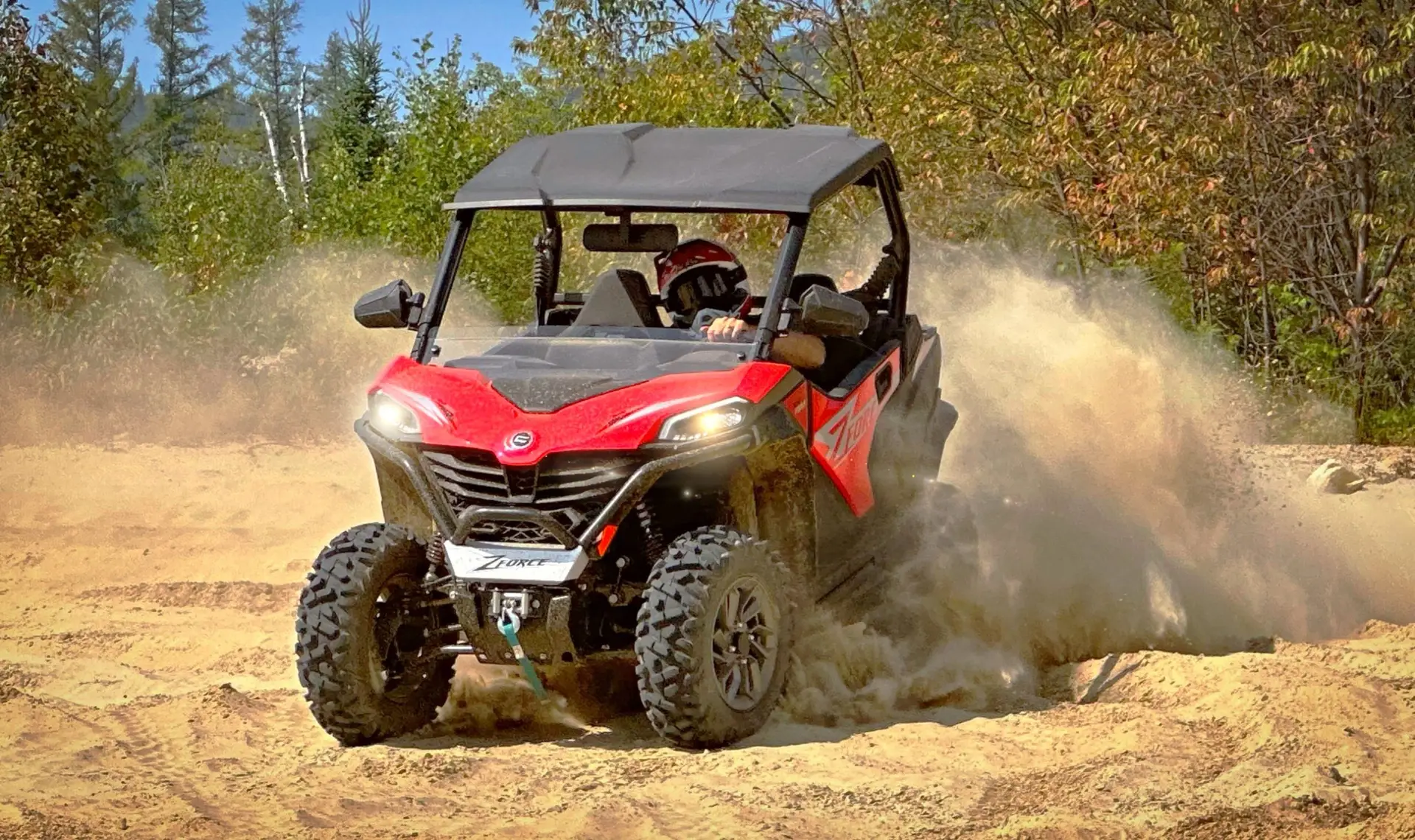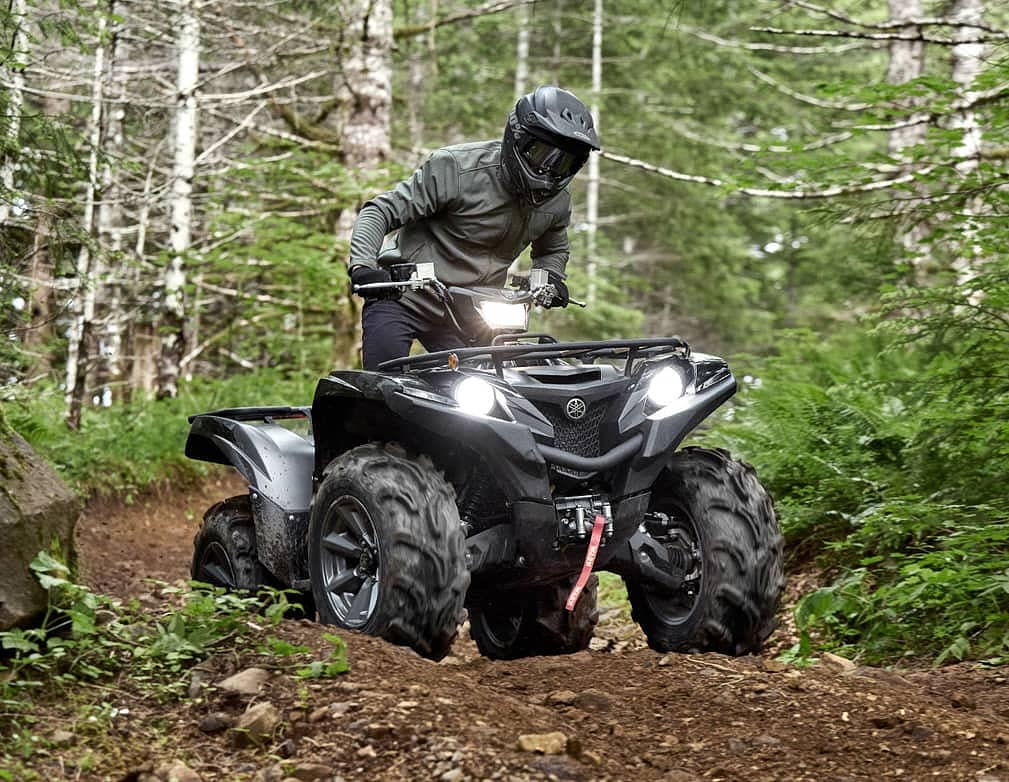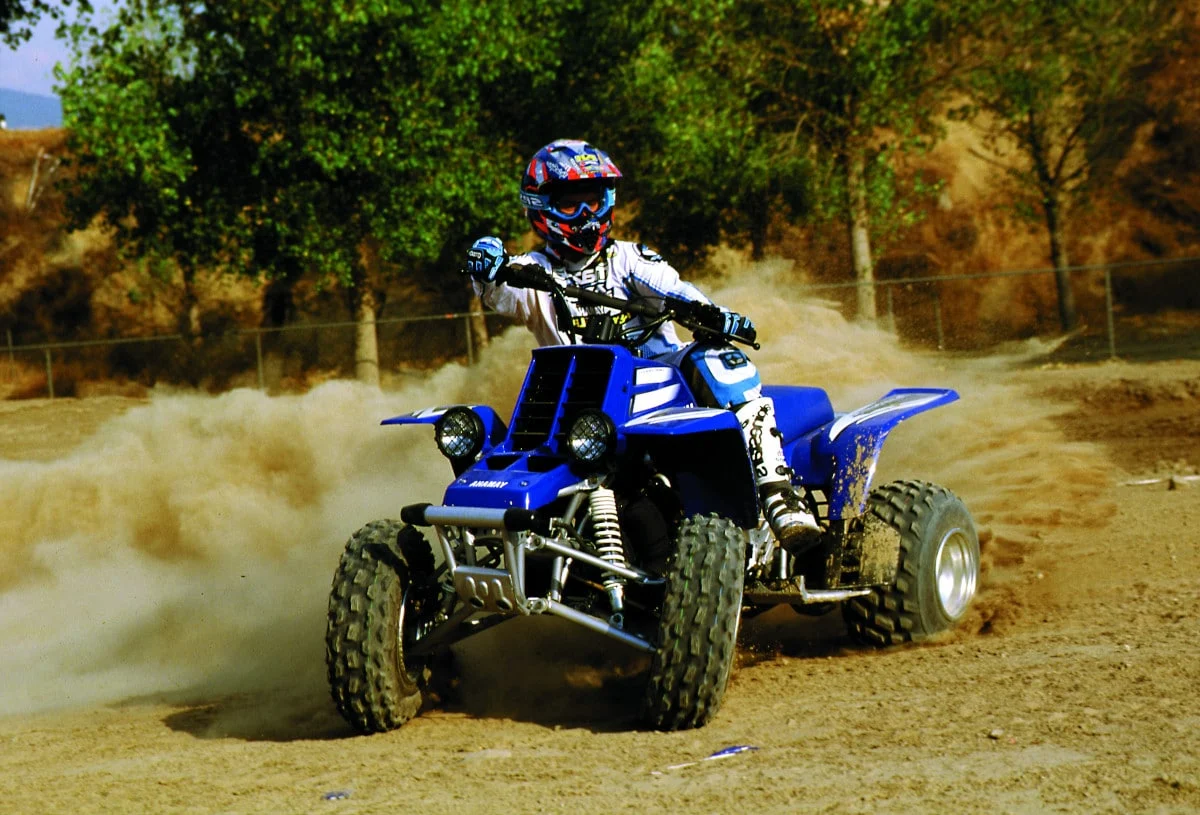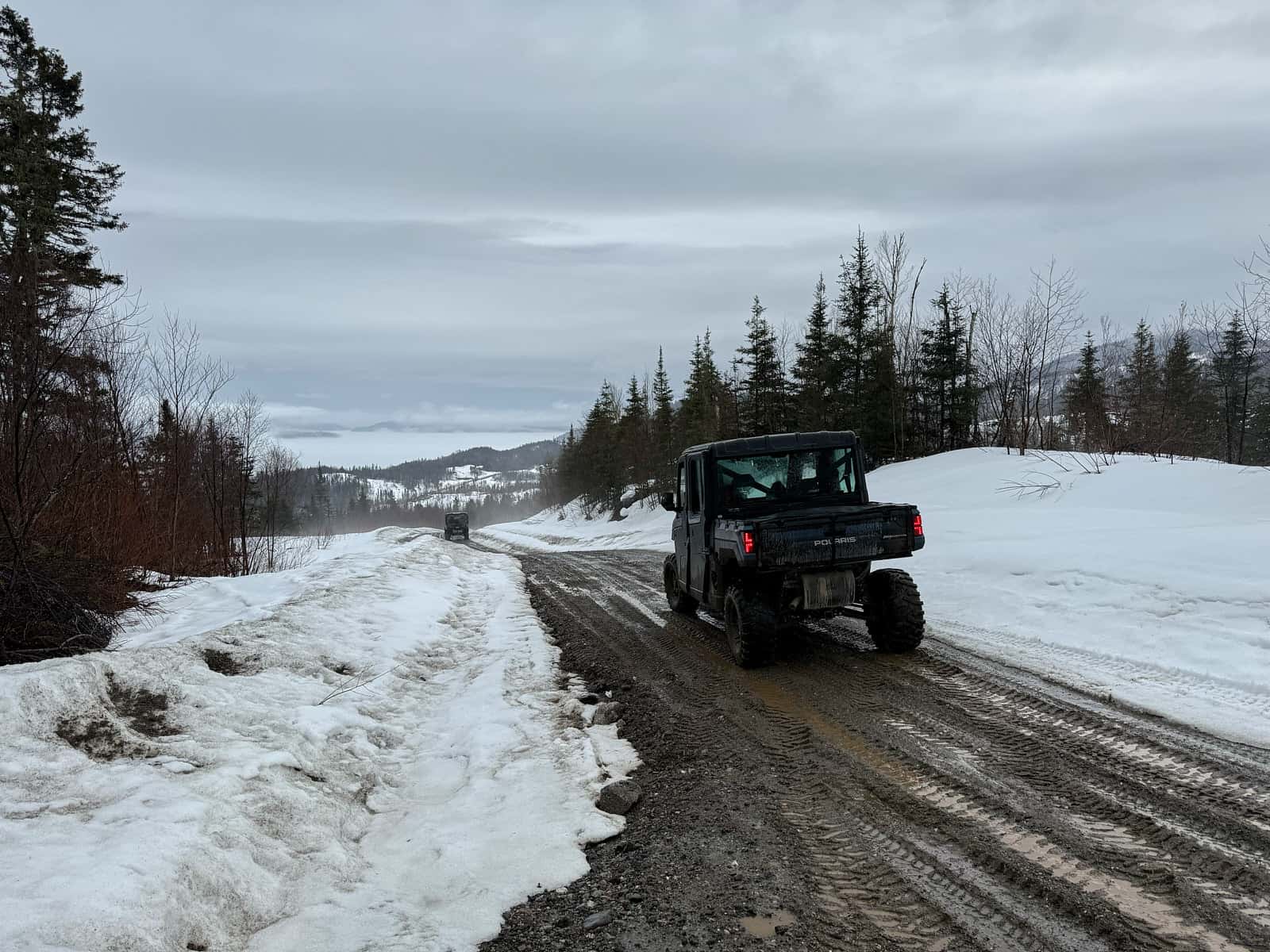Table of contents
ToggleWhether you ride in muddy trails in the spring, face abundant snow in winter, or navigate rocky trails in the summer, choosing the right tires for your ATV (All-Terrain Vehicle) or SxS (Side-by-Side) is crucial. This article will guide you through the essential elements to consider to maximize the performance and safety of your quad.
Importance of Analyzing Your Needs
Before venturing into choosing new tires for your ATV or Side-by-Side, a thorough analysis of your specific needs is essential. Several factors interact to influence the type of tire that best suits your vehicle. Here are some elements to consider carefully:
1. Driving Style
Analyze your driving style. If you prefer peaceful rides on marked trails, tires offering balanced grip and durability may suffice. For a more sporty driving or off-road adventures, more aggressive tires provide increased traction.
2. Type of Terrain
The choice of tires largely depends on the terrain you plan to ride on. Rocky terrains require tires with increased robustness and puncture resistance, while for muddy conditions, tires with spaced treads can improve mud evacuation.
3. Vehicle Characteristics
Consider your vehicle’s specifications, including its weight, power, and load capacity. Heavier vehicles may require more robust tires, while more powerful vehicles can benefit from tires offering better grip.
4. Seasons and Weather Conditions
If you drive throughout the year, take into account the different weather conditions. For example, for winter driving, winter tires are essential to ensure optimal traction on snow and ice.
5. Comfort Preferences
Think about your driving comfort. Some tires offer a smoother ride, while others may be more rigid. If you spend long hours on your vehicle, ride quality becomes an essential factor.
By taking the time to analyze these elements, you will be better equipped to choose tires that will optimize your vehicle’s performance according to your specific needs. This thoughtful approach will help maximize the lifespan of your tires and ensure a driving experience tailored to your expectations.
6. Intended Use
Determine the main purpose of your ATV or Side-by-Side. If you primarily use your vehicle for utility work, tires with excellent durability and load capacity are crucial. For recreational adventures, traction and manoeuvrability may take precedence. Here are some typical uses:
6.1. Summer Rides on Federated Trails
- Tire Profile: Opt for versatile all-terrain tires with a moderate tread pattern. This provides a comfortable ride on a variety of surfaces while maintaining adequate grip on federated trails.
- Number of Plies: A medium number of plies (6 to 8 plies) offers the necessary flexibility to absorb shocks while ensuring sufficient durability.
- Impact on Driving: Smooth and comfortable driving on various trails.
- Impact on Comfort: Balanced performance for a smooth ride.
- Impact on Noise Level: Moderate noise level for a pleasant driving experience.
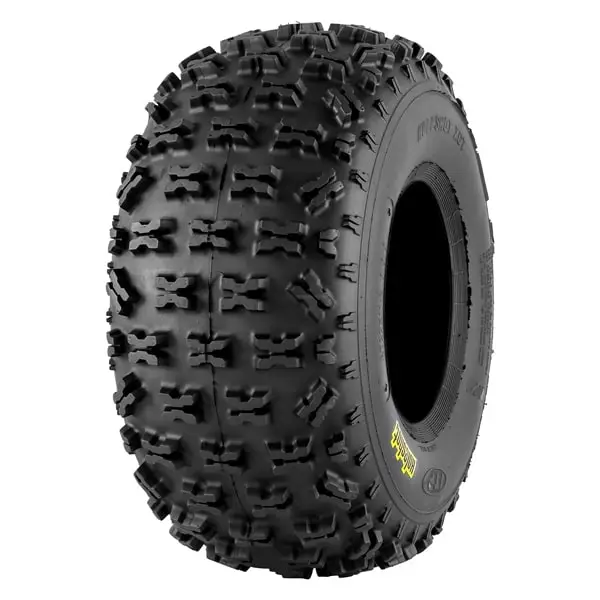
6.2. Rocky Terrains (Rock Climbing)
- Tire Profile: Favour tires with aggressive treads and a robust design. Reinforced sidewalls provide additional protection against sharp rocks.
- Number of Plies: Choose high-strength tires (8 plies and above) to withstand the stresses when driving on rocky terrains.
- Impact on Driving: Exceptional traction on rocky surfaces with increased protection.
- Impact on Comfort: Rougher ride due to the robust design.
- Impact on Noise Level: Potentially higher noise level due to aggressive treads.
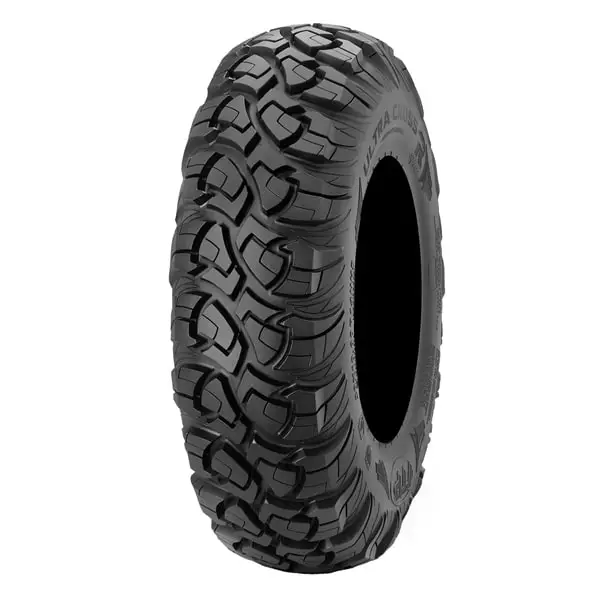
6.3. Muddy Terrains and Mud Competitions
- Tire Profile: Opt for mud profile tires with deep treads to maximize traction in mud. Wide spaces between treads allow for effective self-cleaning.
- Number of Plies: A high number of plies (6 to 8 plies) is recommended to resist the increased pressure exerted by mud.
- Impact on Driving: Exceptional grip in mud with self-cleaning capability.
- Impact on Comfort: Potentially heavier ride due to sticky mud.
- Impact on Noise Level: Moderate to high noise level depending on the depth of the mud.
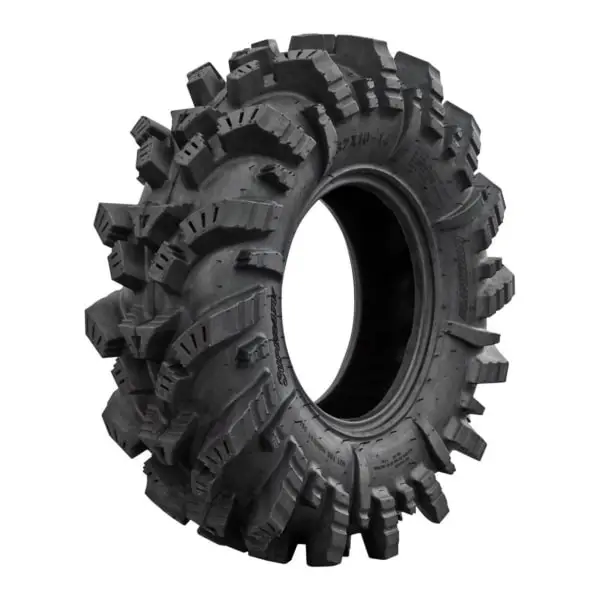
6.4. Work in the Forest or Fields (Utility Context)
- Tire Profile: Choose utility tires with a robust design and reinforced sidewalls. A versatile tread pattern provides stable traction on various surfaces.
- Number of Plies: Opt for a high number of plies (6 to 8 plies) to withstand the tough conditions of working in the forest.
- Impact on Driving: Reliable traction in challenging environments.
- Impact on Comfort: Stable driving, but potentially firmer.
- Impact on Noise Level: Moderate noise level with well-designed utility tires.
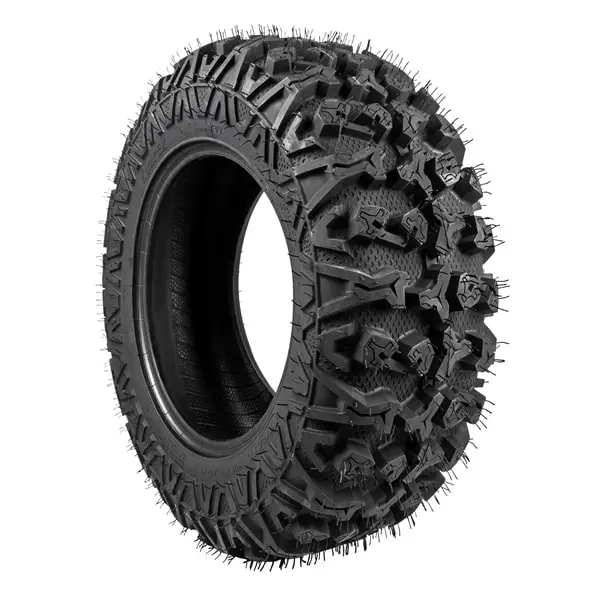
6.5. Winter use
- Tire Profile: Opt for snow tires with deep slats for maximum traction on snow. The design should allow for optimal grip in winter conditions. It is also recommended to use studded iGrip studs, especially when driving on icy surfaces.
- Number of Plies: A medium to high number of plies (6 to 8 plies) provides the necessary robustness to tackle snow.
- Impact on Driving: Reliable traction on snowy surfaces.
- Impact on Comfort: Smoother ride on snow, offering better grip.
- Impact on Noise Level: Generally moderate noise level, depending on the specific design.
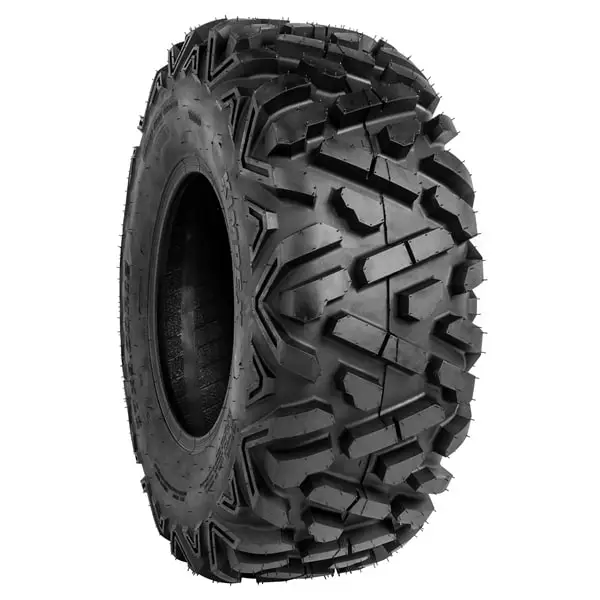
For all uses, it is essential to note that the choice of tire will have a significant impact on driving, comfort, and noise levels. It is recommended to carefully assess specific needs to choose the type of tire that best suits your driving style and usage environment.
Inspection and Maintenance
Regular inspection of your tires is essential to ensure safe driving. Check the air pressure, look for cuts or punctures, and make sure the tread is in good condition. Underinflated or damaged tires can compromise the stability of your vehicle.
Repair or Replacement
The decision to repair or replace a tire depends on the extent of the damage. Minor punctures can often be repaired, but if the tire’s structure is compromised or if the damage is significant, replacement is the best option. Well-maintained tires are crucial for your safety and that of others on the trails.
Environmentally Friendly Disposal of Worn Tires
Responsible management of old tires is crucial for preserving the environment. In Quebec, recycling programs are in place for used tires. You can drop them off at designated recovery centres, where they will be recycled for use in the manufacturing of new products. Never dispose of worn tires in nature, as this can have harmful consequences on the ecosystem.
In conclusion, the right choice of tires for your ATV or SxS is an important decision that directly impacts your driving experience. Remember that regular inspection and environmentally friendly disposal of old tires contribute to safe driving and environmental respect.

